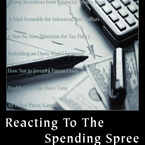
Henry E. Smith
Henry E. Smith is the Fessenden Professor of Law at Harvard Law School, where he also directs the Project on the Foundations of Private Law.
Smith has written primarily on the law and economics of property and intellectual property, with a focus on how property-related institutions lower information costs and constrain strategic behavior. He teaches primarily in the areas of property, intellectual property, natural resources, remedies, taxation, and law and economics.
His most recent books are The Oxford Introductions to U.S. Law Property, with Thomas W. Merrill (Oxford Press, 2010). Other publications include Property: Principles and Policies, with Thomas W. Merrill (Foundation, 2007, 2nd ed., 2012); The Privilege against Self-Incrimination: Its Origins and Development, with R. H. Helmholz et al. (Chicago, 1997); and Restrictiveness in Case Theory (Cambridge, 1996). He is the coeditor of the Research Handbook on the Economics of Property Law, with Kenneth Ayotte (2011); Perspectives on Property Law, with Robert C. Ellickson and Carol M. Rose (forthcoming); and Philosophical Foundations of Property Law, with James Penner (forthcoming).
Smith holds an AB from Harvard, a PhD in linguistics from Stanford, and a JD from Yale. He clerked for the Hon. Ralph K. Winter, U.S. Court of Appeals for the Second Circuit, has taught at Northwestern University School of Law, was the Fred A. Johnston Professor of Property and Environmental Law at Yale Law School and professor of cognitive science at Yale, and has visited at the University of Virginia School of Law, the University of Chicago Law School, Yale Law School, and Harvard Law School.



